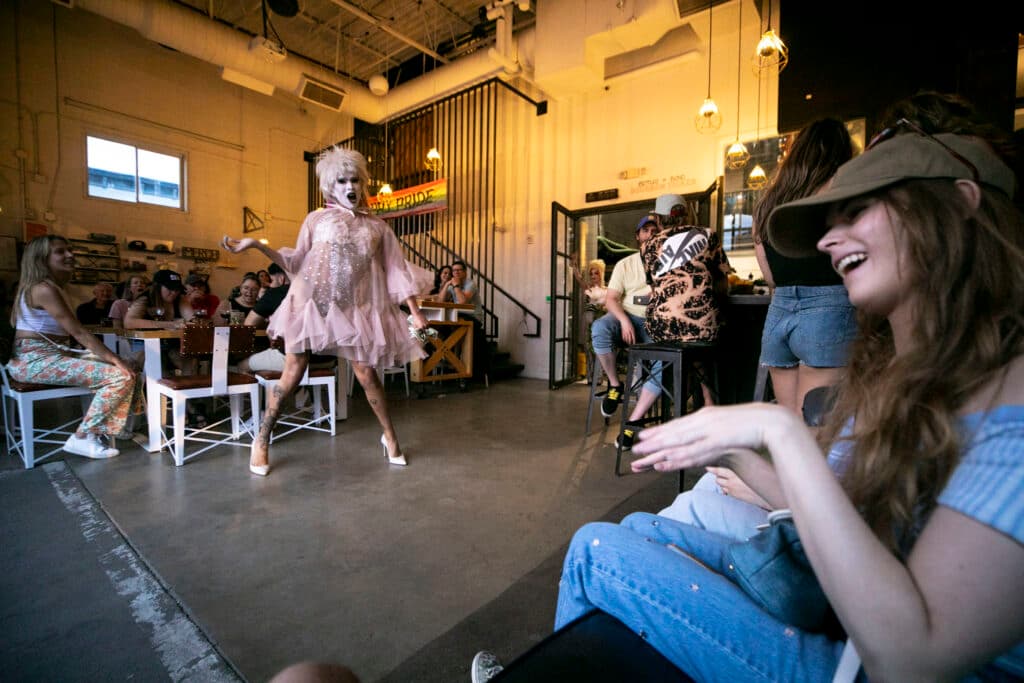Potted Plant's audience was waiting for her as she strutted out into a busy barroom last weekend.
They cheered as she teased them, then erupted as she dropped her robe to lip sync with her entire being.
This was The Blossom Party, her monthly drag show at The Block Distilling Co.'s tasting room on Larimer Street.
It's Pride Month, so this performance was special — but not because the show fell in line with so many other events centered around the LGBTQ experience.
Instead, it was a quiet act of resistance to that public, now-commercialized scene, which Plant said still hasn't fully accepted trans people like her.
"It's a difficult conversation. As a performer myself and as a trans performer myself, a lot of spaces don't necessarily feel as welcoming or as safe for us," she told us.
Beth Salts, who performed at The Blossom Party for the first time last week, said the same.
"It's always assumed that we're just cis men dressed up as women, and we're here for you to touch and make fun of and laugh at, at least for a lot of the straight audience members," she said.
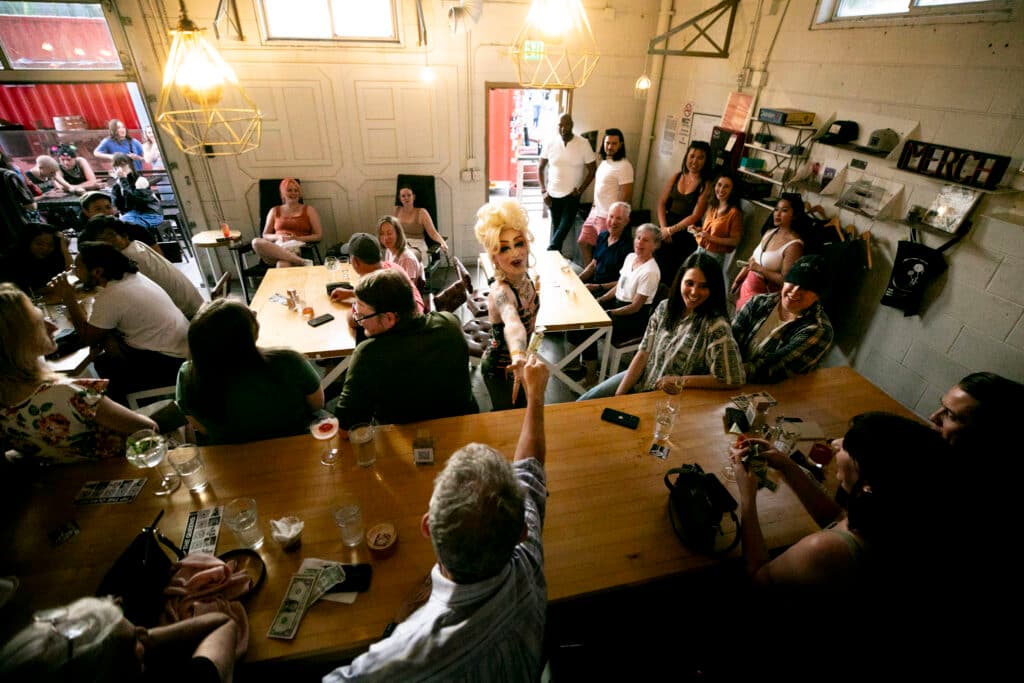
Safety is a big deal, especially for Plant.
She survived the 2022 shooting at Club Q in Colorado Springs, but lost her partner, Daniel Aston, in the tragedy.
Plant knows her existence has been under fire from politicians dedicated to America's culture wars, both nationally and close to home, and how that rhetoric can lead to violence.
But there are internal struggles, too.
The drag scene has simply ignored trans performers, Plant said.
One reason may be rooted in perceptions of what drag means: that performers are specifically people who identify as men and dress as women onstage. But that isn't true.
Plant said her journey to a trans identity was intimately tied to her pursuit of drag, shifting her gender identity onstage, then off. She knows others who had a similar experience, and sometimes paid a price for it.
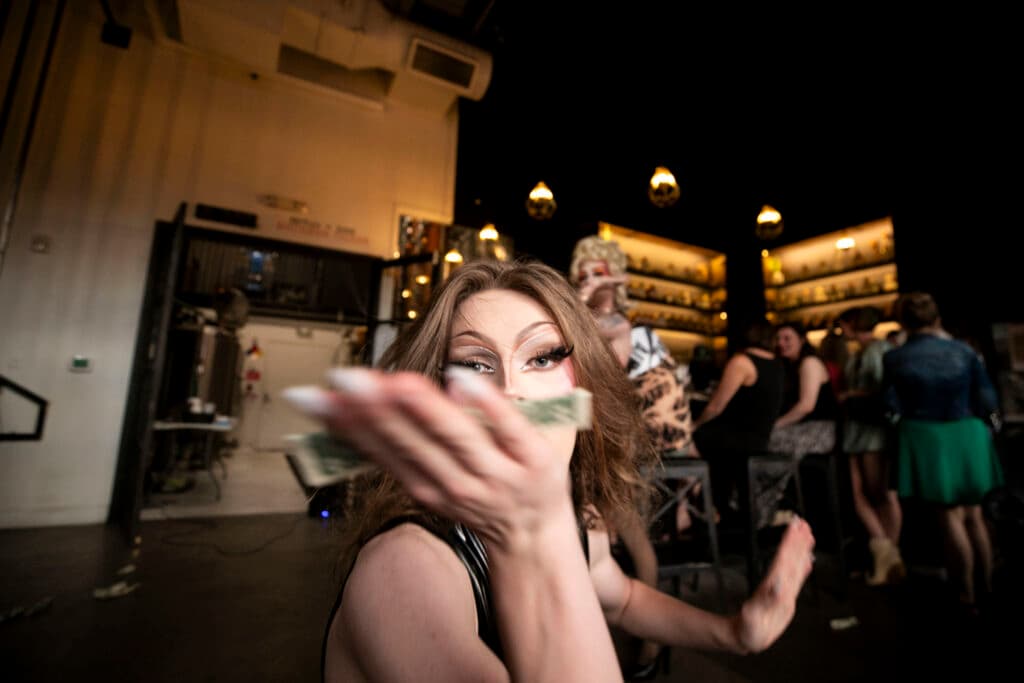
"Drag was a definite pipeline to discovering my transness, or accepting my transness, and that tends to be a common theme in the drag scene," she said. "But it's also very interesting, that once people discover their transness, they can so quickly be ostracized by the drag community."
Z Williams, Plant's co-producer on The Blossom Party who also identifies as trans, said this rift gets at bigger frictions within queer spaces.
"You go to Pride, you might have an idea things are okay because you'll see United Airlines or Coors Beer," they said. "It's very much based on 'Who can we assimilate into sort of this American dream?' If you're white, monogamous and want a white-picket fence and 2.5 children and a middle-class job, then that's fine, but everyone else is still very much vilified and demonized."
Vanity Glamore, who performed at the party last week, said gay bars used to live by a rigid, petulant creed: "No fat, no femme, no Asian."

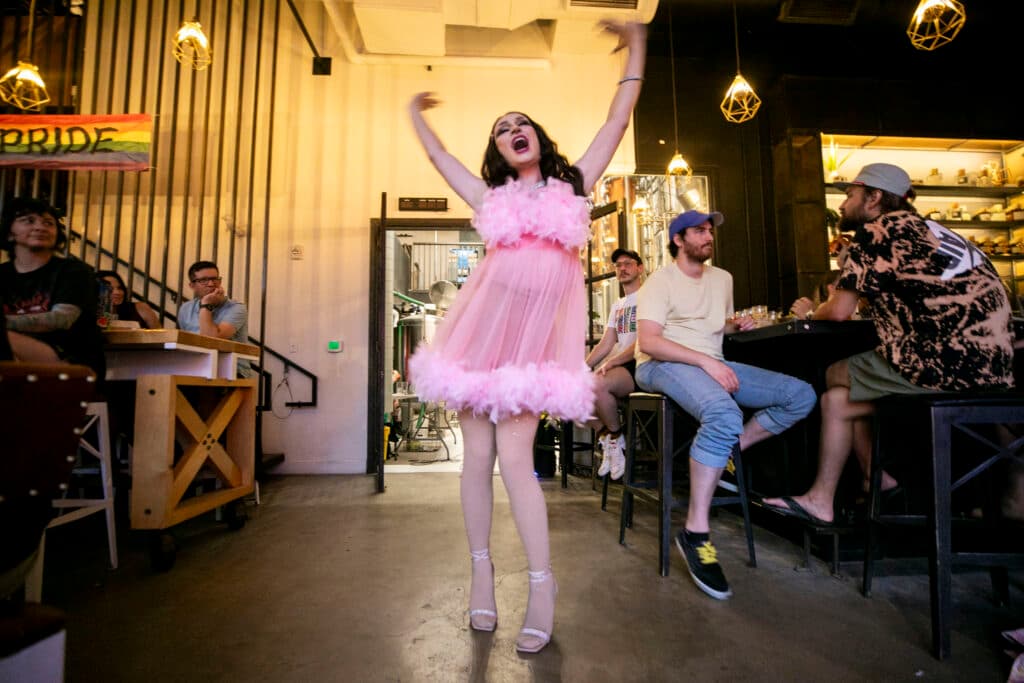
These issues may also be growing pains as Pride and queer life continue to collapse into the mainstream.
It wasn't long ago that Denver PrideFest, put on by The Center on Colfax now for 50 years, was a pariah in the world of corporate sponsorship.
Some feel that the event's commercialization is a sign of progress. Others, like Williams, characterize it more as a sterilization.
DeMarcio Slaughter, who leads Denver PrideFest's main performance stage for The Center, said he's aware of conversations about trans peoples' acceptance onstage and in the community at-large. He said he's committed to bucking that trend.
"I will do whatever I can to make people feel included," he told us.
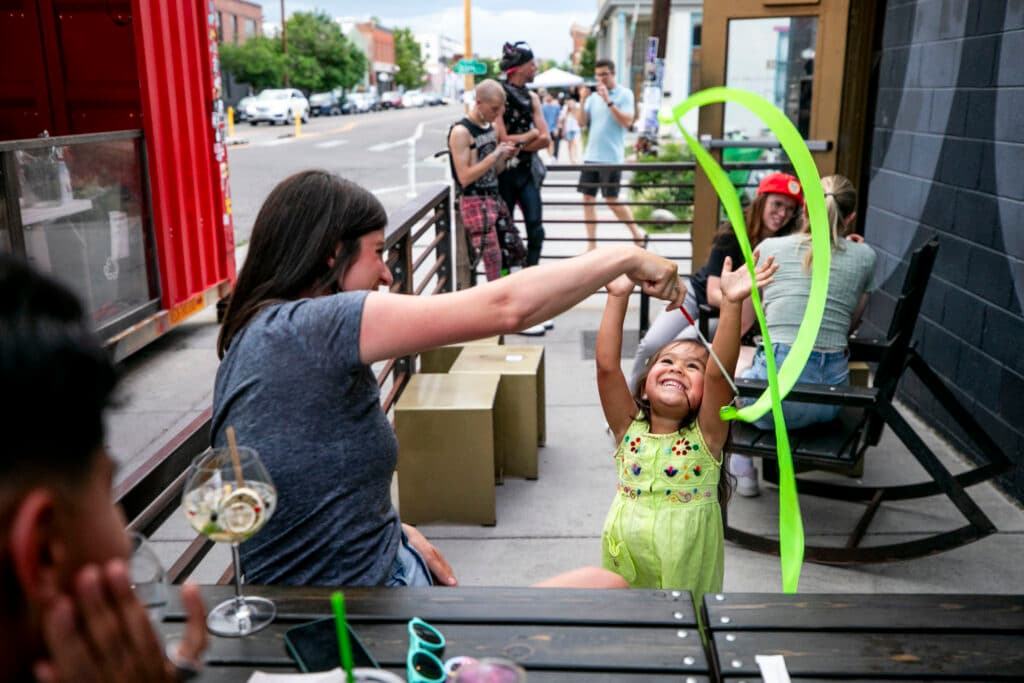
Spaces like The Blossom Party still feel needed. And its performers felt all the love it had to offer.
While the event is conceptually a counterpoint to mainstream gay bars and Pride events, none of that existential tension was present at The Block once the music started.
"It was fabulous," Glamore said as she finished her second set. "Crowd's always good when I come here."
"This is truly a safe space," Camille Leone told us. "The Blossom Party ... has been monumental for me to be able to flourish and grow to the person I am."
Salts said she particularly liked the venue.
"Larimer Street is not necessarily a gayborhood, queer thing, so it's really fun to kind of bring drag to venues that normally aren't drag bars," she said. "I do love introducing people to this world."
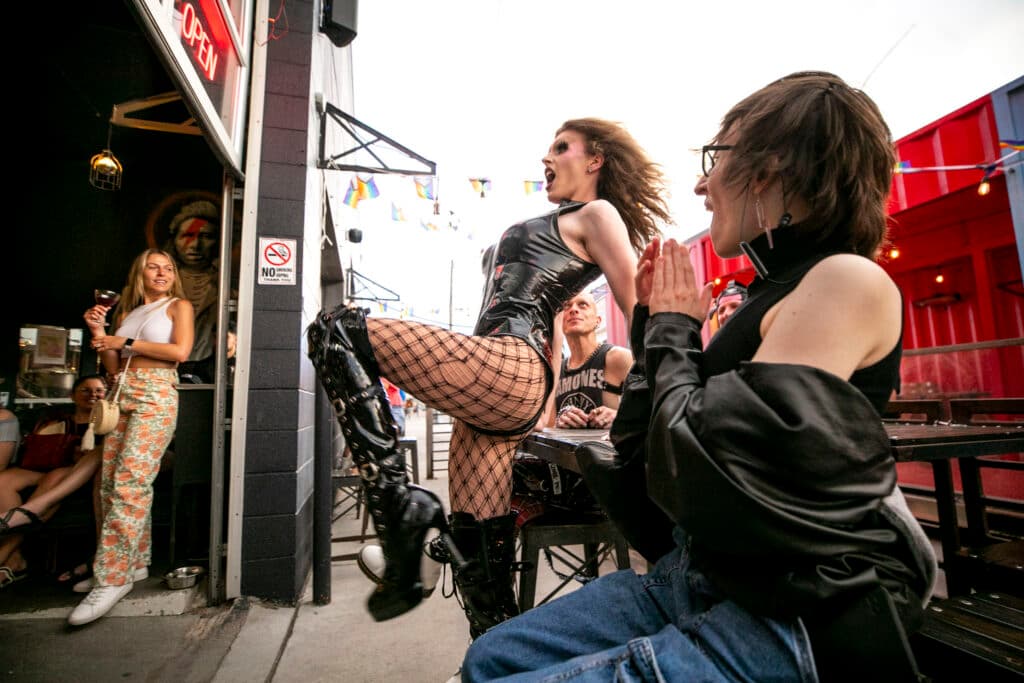
Rubye Moore echoed that perspective, and took it a step further: Being here, and being glamorous, might help move our broader society forward.
"It seems like a mostly straight crowd, which is kind of nice because they don't see drag as often," she said. "I hope they would have a good time at this show, and go and tell people about it and keep that in mind for themselves when they're in a voting booth."
That's what Plant was feeling. Creating a place to be seen, she told us, is still so important.
"Pride is a bigger thing than me, and it's a bigger thing than you, and it's a bigger thing than the corporations that want to think that they own it," she said. "Pride is our existence and pride is being present."
